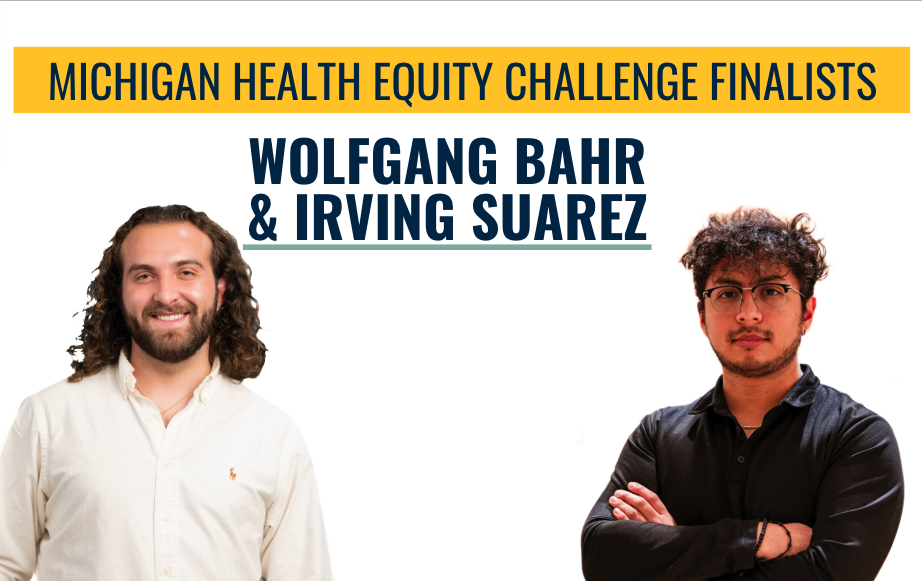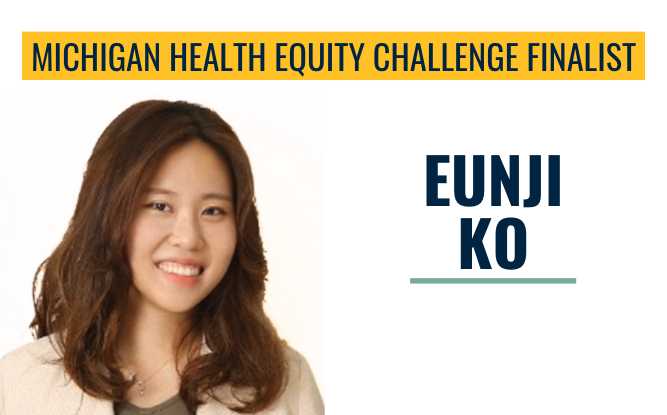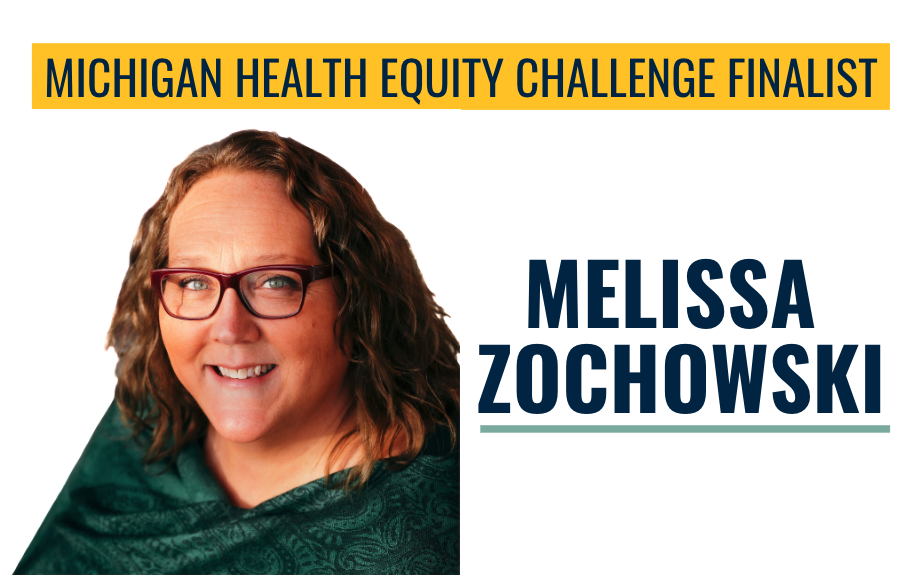Uniendo Corazones: Promoting Heart Health Equity in Latinx ImmigrantCommunities in Oakland County
It’s consuming to think about this health equity thing and why it takes a “challenge” to help overcome a tiny fraction of the impacts racism has had in this country. Our names are Wolfgang Bahr and Irving Suarez, both graduate students at the University of Michigan’s School of Public Health. While we find ourselves in the same city, fighting the same battle, our paths to this place vary greatly.
Lessons From a Facilitator and a Daughter
During my gap year after my undergrad, I had the pleasure of facilitating weekly support groups for survivors of narcissistic abuse at my local women’s center. The stories the participants shared and the strength of the women to dedicate time to meet and engage in discussions on tough personal topics were moving. But one persistent issue that stuck with me throughout months of facilitating these sessions is the number of women who shared how they never knew of organizations such as this women’s shelter and wished they had signed up for these earlier. If they had, they might have made better choices.
Holistically Healthy Housing in Oakland County
Hi, we’re Natalie and Brooke, two master’s students at the University of Michigan. Natalie is studying Architecture with a concentration in Design + Health, and Brooke is studying Environmental Justice and Urban and Regional Planning. We met in January of 2023 during the Dow Sustainability Fellowship Orientation. We sat at the same table and soon discovered shared passions for the justice and welfare of individuals and communities. Throughout 2023, we worked alongside two other graduate students and Habitat for Humanity International to create a Healthy Housing Map and Healthy Housing Building Strategies Booklet to help Habitat for Humanity affiliates identify ways to make homes in their area healthier. When we heard about the Michigan Health Equity Challenge, we thought it would be a great opportunity to work with a local Habitat for Humanity affiliate here in Southeastern Michigan to implement the strategies we had put together over the past year. We are excited to announce our proposal of Holistically Healthy Housing in Oakland County, MI.
Bridging Gaps for Pediatric Oral Health: A Community-Based Initiative
Hi! I'm Eunji, a first-year student at the University of Michigan School of Dentistry. My journey into the world of dental care and interest in health equity began with a transformative moment in the summer of 2020. I was shadowing a pediatric dentist, eager to gain more experience in an oral healthcare setting. Little did I know, this experience would shatter my preconceptions and ignite a passion of addressing systemic barriers to dental care access, especially among underserved communities.
Minds Connect: Bridging Education and Mental Health through Audio-Telehealth
As an educator, I've always believed in the transformative power of education to uplift and empower individuals. Little did I know that my teaching experience during the COVID-19 pandemic would reaffirm this belief in the most profound way possible.
Community-Driven Solutions: A Reflection on the Health Equity Challenge
Hello, I'm Olivia Morris, and I'm excited to share my journey with you as a finalist in the Michigan Health Equity Challenge. Currently, I'm in my second and final year of my Master's program at the Ford School of Public Policy. My passion for addressing health disparities and advocating for vulnerable communities has been a driving force throughout my academic and professional journey.
CanSearcher: Creating a ‘Google Map’ of Cancer Clinical Trials
Digital maps have revolutionized the art of traveling and tourism. There used to be a time when it was absolutely necessary to have local tour guides when visiting a new place. This was a necessity for anyone looking to maximize their stay when visiting a city in order not to miss out on the goodies of the best restaurants, parks, museums, and other attractions as the case may be. While human tour guides are still relevant and super helpful, “Google Maps” and other digital maps have become quite ubiquitous and a must-have, not only for traveling but also for daily commutes for the average human. Enabled by the use of digital maps, we can now easily search and get recommendations of the closest attraction sites including step-by-step directions on how to get there.
Improving Mental Healthcare for Queer and Trans Communities of Color
There have been so many other kids like us - queer and trans youth of color who find it so hard to find a place that fits them. Thankfully, we have seen an emergence of evidence based mental health care for LGBTQIA2S+ individuals of color, even within the Metro Detroit area. Unfortunately, the demand for intersectional, competent care is high, and many queer and trans individuals are still dealing with the pain of isolation and rejection. Many of the clients we see as clinical therapy interns at FairSky Foundation are queer and trans people of color who looked for us specifically because there are so few people queer or trans therapists of color. We’ve been there. We get it. Unfortunately, there are significant barriers for queer and trans clinicians of color, which makes dissemination of culturally humble training all the more necessary.
How Mutual Aid Organizations Are Part of Public Health Solutions
The African Methodist Episcopal (A.M.E.) Church in Ypsilanti, Michigan was once a notable stop along the Underground Railroad. The congregation had a significant role in helping freedom seekers pass through to Canada as well as supporting those who decided to settle in Michigan. The Ypsilanti congregation met the needs of its growing community just as A.M.E. clergymen Richard Allen and Absalom Jones had done when they created the Free African Society, one of the first Black mutual aid societies in the country. Mutual aid efforts like the Underground Railroad and the Free African Society helped people survive through community mobilization, effectively transforming the social and economic possibilities at the time.
Holistic Opportunities for Patient Equity (HOPE) Clinical Intervention
Clinical encounters are a routine aspect of healthcare for many individuals, but for those who are neurodivergent, these appointments can present unique challenges. Neurodiversity refers to the natural variation in neurological traits among individuals, encompassing differences in cognition, perception, and behavior. Making up an estimated 20% of the population, individuals who identify as neurodivergent may experience the world through ADHD, OCD, generalized anxiety, schizophrenia, autism, or some combination of these. While systems, cultures, and social structures often emphasize conformity to a narrow set of norms, neurodiversity challenges this notion by celebrating the unique perspectives and abilities of neurodivergent individuals.










